
An Illustration of Jesus Bible Teaching
Script currently unavailable.

Script currently unavailable.

Paul uses the "unknown God" altar in Athens to introduce God, emphasizing unity from a common ancestor, cultural diversity by design, and seeking God personally.

Script currently unavailable.

The Thyatira church is praised for love and progress but criticized for tolerating Jezebel's false teachings. Jezebel symbolizes idolatry and immorality, leading to spiritual downfall. Jesus warns against idolatry, promising judgment and rewards based on deeds. Believers must remain faithful, avoiding corrupt influences, to receive divine rewards.
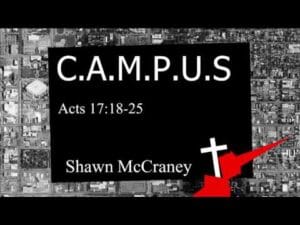
Paul engages with Epicureans and Stoics in Athens, clarifying misconceptions about Jesus and the resurrection. He introduces the "unknown God" as the true creator, emphasizing spiritual maturity, God's omnipotence, and the need for sincere worship beyond physical temples.
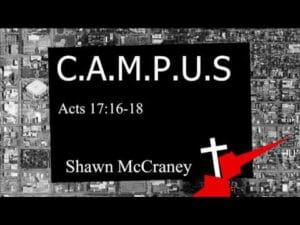
Shawn's teaching contrasts Christian and Greek idolatry, highlights Paul's debates in Athens, and provides a historical overview of Western philosophers and their contributions.

Shawn's teaching on Revelation 2:12-18 highlights Jesus' message to Pergamos, focusing on the sharp two-edged sword as His Word, the threat of corruption, and the need for repentance.

Shawn's teaching covers the mixed reception of the Gospel in Thessalonica, translation errors in scripture, the Bereans' open-mindedness, and contrasts between worldly and spiritual values.
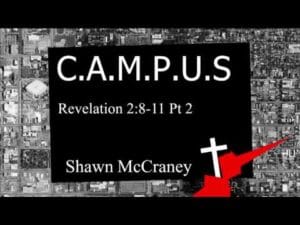
Shawn's teaching on Revelation 2:8-11 emphasizes enduring faith through trials, promising a "crown of life." Smyrna symbolizes persecution, urging believers to remain steadfast.

Paul and Silas freed from prison; jailer converted by faith. Paul asserts Roman rights for justice, balancing faith and legal standing. Confession aids healing. Jesus fulfills prophecies.
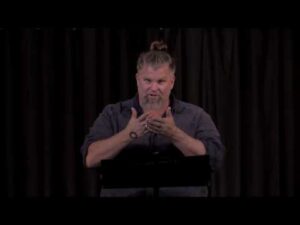
Shawn's teaching highlights Smyrna's early Christian significance, Polycarp's role, spiritual wealth over material, and faith's triumph over persecution, emphasizing eternal life.

Shawn's teaching emphasizes the narrow path to eternal life, selflessness, spiritual growth, and transcending earthly comforts, focusing on Christ's example and teachings.

Paul and Silas' faith led to a miraculous prison release, inspiring a jailer's conversion. Shawn's teaching emphasizes self-denial, community support, and hospitality.

Shawn's teaching emphasizes Jesus' promises to Sardis and Philadelphia believers, focusing on eternal life, spiritual identity, and overcoming challenges for heavenly rewards.

A spirit-possessed maiden's prophecy profits her masters until Paul expels the spirit, causing financial loss and his imprisonment. The teaching highlights liberation, faith, and praising God amid adversity.

The teaching summary emphasizes the early church's decision against requiring circumcision for Gentiles, the importance of context in scripture interpretation, reliance on spiritual guidance over institutional authority, the evolving role of prophecy, and the need for reconciliation and forgiveness in conflicts.
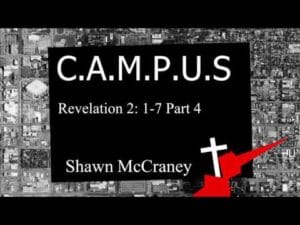
Jesus' promises to the Seven Churches focus on spiritual authority, overcoming challenges, and divine inheritance. Shawn suggests some prophecies are fulfilled, like Jerusalem's judgment in 70 AD. White garments symbolize purity, and the Book of Life's role in judgment is debated. The teaching explores resurrection, eternal life, and the intersection of free will and predestination. Christ's triumph over death is questioned, pondering if it includes the "second death."
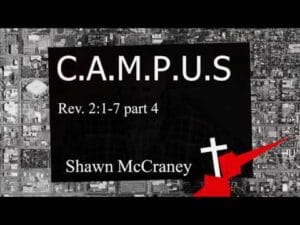
Jesus' message to the seven churches in Revelation emphasizes listening to the Spirit, offering blessings for overcoming challenges, like access to the tree of life and protection from the second death. The tree symbolizes eternal life, wisdom, and healing. Overcomers receive "hidden manna" and a "white stone" as spiritual rewards.

Timothy, nurtured by Eunice and Lois, was circumcised by Paul to avoid Jewish conflict. Paul's flexible approach spread faith, seen in the Macedonian call and Lydia's conversion.

Paul and Barnabas addressed Gentile circumcision in Jerusalem. James concluded Gentiles needn't follow this, advising avoidance of idolatry, fornication, strangled animals, and blood.